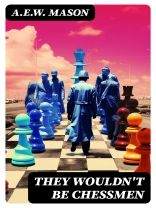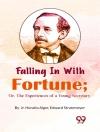In 'They Wouldn’t Be Chessmen, ’ A.E.W. Mason intricately weaves a narrative that explores the complexities of human relationships set against the backdrop of post-World War I society. This novel is characterized by its sharp dialogue and astute psychological insights, presenting a rich tapestry of characters whose motivations and interactions reveal the moral and existential dilemmas of the time. Mason employs a blend of realism and allegory, inviting readers to ponder the societal roles individuals play, akin to chess pieces on a board, while reflecting on the consequences of their choices in an uncertain world. A.E.W. Mason, known for his endeavors as a writer, playwright, and politician, draws from his extensive life experiences and a deep understanding of human nature to craft this compelling narrative. His varied background, including a stint in the British military and keen observations of early 20th-century British society, informs his writing, allowing him to capture the zeitgeist of his era. Mason’s firsthand experiences also lend authenticity to the psychological depth of his characters, making their struggles both relatable and poignant. For readers who appreciate nuanced character studies and sociopolitical commentary, 'They Wouldn’t Be Chessmen’ is a must-read. Mason’s keen insights into the human condition combined with his ability to reflect historical context create a rich literary experience that resonates even today. This novel not only entertains but also provokes thought, making it a significant contribution to the canon of early 20th-century literature.
O autorze
Alfred Edward Woodley Mason, commonly known as A.E.W. Mason (1865–1948), stands as a significant figure in early 20th-century English literature, renowned for his ability to weave captivating tales that spanned genres from adventure to crime fiction. Mason’s literary career was marked by a penchant for creating narratives that combined historical accuracy with thrilling plots, a skill that won him a dedicated readership during his lifetime and beyond. His novel 'They Wouldn’t Be Chessmen’ is just one entry in a laudable bibliography that includes the likes of 'The Four Feathers’, a classic that exemplifies his storytelling prowess and his ability to explore themes of honor and cowardice through an adventure framework. Mason’s style often embraced a fusion of detailed character development and meticulously researched historical settings, earning him a reputation as a master of suspense and dramatic tension. Educated at Dulwich College and Trinity College, Oxford, Mason’s worldview was broadened by his service as a war correspondent during the Boer War. He juggled his literary ambitions with a political career, serving as a Member of Parliament for Coventry from 1906 to 1910. However, it is through his written work that Mason’s legacy endures, reflecting not only the mores of his own era but also the timeless qualities of courage and moral complexity that continue to resonate with modern readers.












